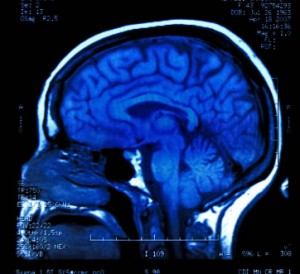Published: October 5, 2011

istockphoto
Cognitive therapy has dynamically improved the most neurologically impaired, poorly functioning schizophrenic patients. For the first time, researchers from the Perelman School of Medicine at the University of Pennsylvania have shown that a psychosocial treatment can significantly improve daily functioning and quality of life in the lowest-functioning cases of schizophrenia. The study appears in the October 3 edition of Archives of General Psychiatry.
“Mental health professionals often give up on the lowest-functioning cases of schizophrenia and may say that they are not capable of improving,” said Paul Grant, PhD, lead author of the study and assistant professor in Psychiatry at Penn’s Perelman School of Medicine. “Our results suggest that cognitive therapy can improve quality of life, reduce symptoms, and promote recovery in these patients. This intervention can help these patients improve to the point where they may be able to move up to the next level in psychosocial functioning – i.e. going from being unemployed to volunteering part-time; not being in school to enrolling in night classes; not socializing to having a weekly social contact and making a friend or two.” [continue reading…]
Published: August 26, 2011

© istockphoto
esearchers from the
Royal College of Surgeons in Ireland (RCSI) and Beaumont Hospital have conducted a study which has found striking brain similarities in bipolar disorder and schizophrenia. The research has also pinpointed for the first time that a process which controls how information is transmitted from neuron to neuron in the brain is altered in both conditions and may potentially contribute to the developments of improved treatments in the future.
The study was the first to look at sub-regions in the part of the brain known as the hippocampus. Abnormalities in the hippocampus are among the most consistent findings in schizophrenia research and are also implicated in bipolar disorder. Certain areas of the hippocampus (cornu ammonis regions 2 and 3) were found to be different, in terms of how their proteins are affected, in people with schizophrenia and bipolar disorder compared to the general population. The differences observed in these regions were found to be almost identical in both conditions. A process which controls how information is transmitted by the shuttling of proteins to and from the synapse (a junction that permits a neuron to pass a signal to another cell) was also found to be is affected in both illnesses. [continue reading…]
Published: August 7, 2011
The New York Times has an excellent feature article on schizophrenia ~ Living With Voices: Joe Holt, a computer consultant and entrepreneur who has a diagnosis of schizophrenia, describes how he’s learned to manage the voices in his head.Video of Joe Holt talking about how his life with schizophrenia
Coping with the voices in his head:
The job was gone, the gun was loaded, and a voice was saying, “You’re a waste, give up now, do it now.”
It was a command, not a suggestion, and what mattered at that moment — a winter evening in 2000 — was not where the voice was coming from, but how assured it was, how persuasive.
Losing his first decent job ever seemed like too much for Joe Holt to live with. It was time.
“All I remember then is a knock on the bedroom door and my wife, Patsy, she sits down on the bed and hugs me, and I’m holding the gun in my left hand, down here, out of sight,” said Mr. Holt, 50, a computer consultant and entrepreneur who has a diagnosis of schizophrenia.
“She says, ‘Joe, I know you feel like quitting, but what if tomorrow is the day you get what you want?’ And walks out. I sat there staring at that gun for an hour at least, and finally decided — never again. It can never be an option. Patsy deserves for me to be trying.
Curious? Continue Reading…
Source: New York Times
Writer and documentary maker Jon Ronson returns for another 5 part series of fascinating stories shedding light on the human condition.
Eleanor Longden started to hear voices in her head when she was at university and was diagnosed as a schizophrenic – a label she totally rejects. Now she is a high achieving academic. What started the voices and how did she get to a point where she not only lives happily with the voices that still exist but also works with others who have the same experience? With contributions from writer Graham Linehan and comedian Josie Long.
 Link to Listen ( 1 day left to hear this broadcast )
Link to Listen ( 1 day left to hear this broadcast )
Source: BBC Radio 4


